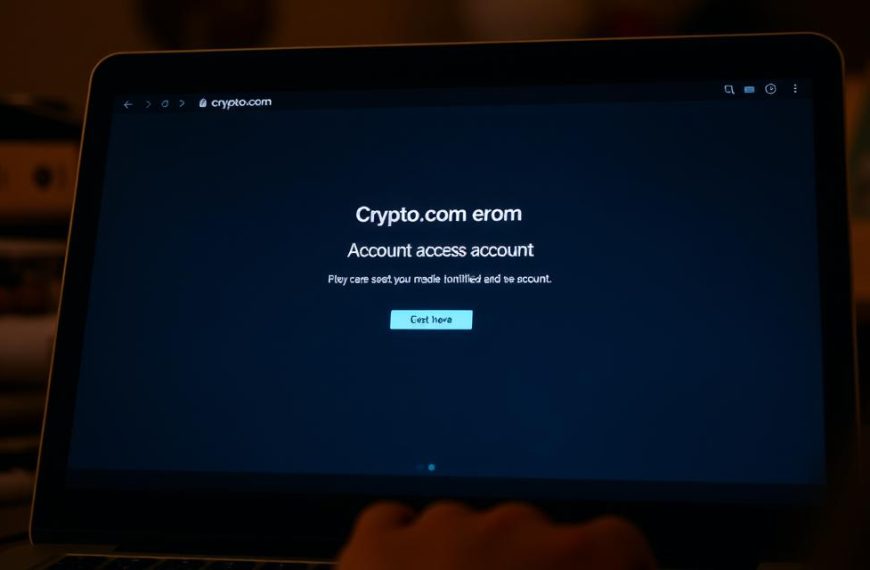Cryptocurrency inheritance can be tricky. It’s vital to know how to protect and transfer your digital assets. This knowledge is crucial for your long-term financial plans.
Digital assets like Bitcoin pose unique inheritance challenges. They differ greatly from traditional assets. Proper planning is essential to ensure their safe transfer.
About 20% of all Bitcoin tokens are thought to be lost forever. This fact underscores the importance of careful crypto estate planning. Without proper prep, your digital investments could vanish.
The IRS classes cryptocurrency as a digital asset. It’s treated like stocks or tangible property. This means your crypto could face capital gains tax. Special strategies are needed for effective inheritance.
This guide will help you secure your digital legacy. We’ll cover steps to protect your crypto investments. You’ll learn how to transfer them to your chosen beneficiaries.
We’ll tackle legal complexities and robust security measures. Our insights will help you safeguard your digital wealth. You’ll be equipped to handle your crypto inheritance with confidence.
Understanding Cryptocurrency as a Digital Asset
Cryptocurrency is a complex digital asset that reshapes wealth management. The IRS classifies these digital currencies as property, creating unique inheritance challenges.
Digital assets need careful management. Cryptocurrencies require specialised knowledge of tech and legal frameworks.
IRS Classification of Digital Assets
The Internal Revenue Service has a specific view on cryptocurrencies. They’re treated as property, like stocks. They’re subject to capital gains tax rules.
Taxation depends on how long you hold them. Long-term holdings get better tax treatment.
Digital Wallets and Asset Management
Digital wallets are crucial for managing cryptocurrency. Securing private keys is vital for protecting digital wealth. There are two main wallet types:
- Hot wallets: Internet-connected, offering convenience
- Cold wallets: Offline storage, providing enhanced security
Crypto Tax Implications for Inheritance
Inherited cryptocurrency creates complex tax situations. Beneficiaries must deal with potential capital gains tax. They also face asset valuation challenges.
Fluctuating cryptocurrency market values add another layer of complexity.
The adage “not my key, not my coin” underscores the critical importance of secure access in cryptocurrency inheritance.
Effective crypto estate planning needs thorough documentation. It also requires secure key management. Professional guidance is essential to protect your digital legacy.
The Importance of Crypto Estate Planning
Digital assets have changed how we manage wealth. Crypto estate planning is vital to protect your financial legacy. Without it, your cryptocurrency could become inaccessible, leaving your heirs with nothing.
Cryptocurrency inheritance poses unique challenges. Many crypto investors are young and overlook digital asset transfer complexities. A tragic example highlights this risk. A crypto company CEO died at 30, leaving millions locked away forever.
- Cryptocurrency is a bearer instrument where possession of private keys determines ownership
- Most exchanges do not support beneficiary designations
- Without proper documentation, digital assets can be lost permanently
A thorough cryptocurrency will is crucial for safeguarding your digital wealth. It should include key details about your holdings.
You must securely store private key information. Identify a trusted digital executor. Create clear transfer instructions.
- Documenting all cryptocurrency holdings
- Securely storing private key information
- Identifying a trusted digital executor
- Creating clear transfer instructions
Planning ahead ensures your digital assets can be legally transferred. This protects your family’s financial future. It also prevents potential asset loss.
What Happens to Cryptocurrency When You Die
Cryptocurrency poses unique estate planning challenges. These can greatly affect your digital wealth after death. Proper management of digital assets is vital to prevent permanent loss.
Digital asset inheritance is complex and risky. Without careful planning, your valuable cryptocurrencies could become inaccessible or lost forever.
Lost Access and Permanent Asset Loss
Cryptocurrency holdings can disappear if private keys aren’t documented. This risk can lead to irretrievable assets and total loss of digital wealth.
There’s no central system to recover lost keys. This makes proper key transmission crucial for protecting your assets.
- Irretrievable assets without proper key transmission
- Potential total loss of digital wealth
- No centralised recovery mechanism for lost keys
State Laws and Intestacy Rules
Digital asset probate varies across jurisdictions. State intestacy rules govern unclaimed cryptocurrency distribution. These rules often prioritise immediate family members.
Probate Process for Digital Assets
Executors face complex legal challenges when managing cryptocurrency inheritances. Key requirements often include official documentation and legal verification.
- Providing official death certificates
- Submitting comprehensive probate documentation
- Verifying executor’s legal authority
- Documenting precise cryptocurrency holdings
Proactive estate planning remains the most effective strategy for protecting your digital financial legacy.
Essential Steps for Securing Your Digital Legacy
Digital asset protection is vital in our connected world. It requires careful planning to keep your cryptocurrency investments safe. This ensures they can be passed on to your heirs.
Cryptocurrency inheritance planning involves several key steps. These measures can safeguard your digital wealth effectively.
- Document all cryptocurrency holdings meticulously
- Create comprehensive backup methods
- Test recovery seeds and wallet access
- Build redundant storage systems
- Consider professional custodial services
Secure cryptocurrency transfer needs thorough preparation. An estimated 70% of people do not have a plan for their digital assets after death. This can cause major financial issues for families.
Protecting your digital assets is not just about preservation—it’s about creating a lasting financial legacy for your loved ones.
Here are key tips for managing your digital legacy:
- Inventory all digital wallet addresses
- Store access credentials in a secure location
- Inform a trusted executor about your digital assets
- Use multi-factor authentication
- Regularly update your digital asset plan
Cryptocurrency values may reach £10 trillion by 2030. This makes robust digital legacy protection strategies crucial. Taking action now can prevent asset loss.
It also ensures smooth transfer of your digital wealth to future generations. Don’t delay in securing your digital legacy.
Choosing and Instructing a Digital Executor
Selecting a digital executor is crucial for safeguarding your cryptocurrency legacy. This person must know crypto security protocols and digital asset management. With about 100 online accounts per person, the job needs careful attention and tech skills.
Seek someone with strong technical knowledge and access documentation abilities. The Florida Fiduciary Access to Digital Asset Act 2016 stresses legal empowerment for digital asset management. Choose an executor who grasps blockchain, encryption, and crypto inheritance.
Your digital executor should handle password management, wallet access, and platform restrictions. About 25% of internet users now use password management software. This can help secure and transfer digital assets more easily.
Provide clear, detailed instructions for your executor. This ensures your cryptocurrency investments stay protected and transferable after you’re gone. The right person will guard your digital wealth and financial legacy.
They’ll bridge traditional estate planning and the new digital asset world. Their role goes beyond tech management. They’ll make sure your crypto investments are kept safe and shared as you wish.











